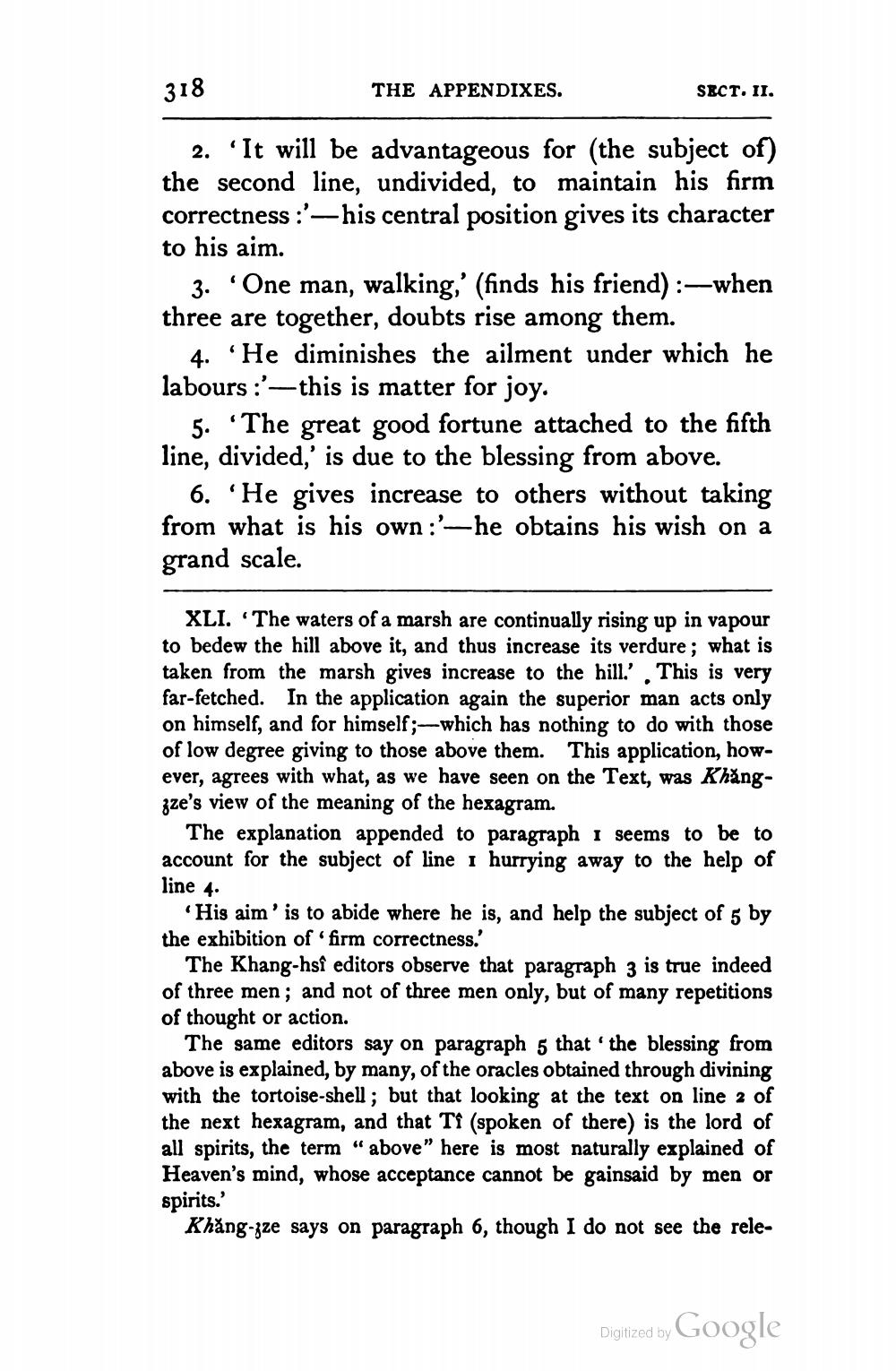________________
318
THE APPENDIXES.
SECT. II.
2. 'It will be advantageous for the subject of) the second line, undivided, to maintain his firm correctness :'-his central position gives its character to his aim.
3. One man, walking,' (finds his friend) :—when three are together, doubts rise among them.
4. “He diminishes the ailment under which he labours :'--this is matter for joy.
5. The great good fortune attached to the fifth line, divided,' is due to the blessing from above.
6. 'He gives increase to others without taking from what is his own :'-he obtains his wish on a grand scale.
XLI. "The waters of a marsh are continually rising up in vapour to bedew the hill above it, and thus increase its verdure; what is taken from the marsh gives increase to the hill.'. This is very far-fetched. In the application again the superior man acts only on himself, and for himself; which has nothing to do with those of low degree giving to those above them. This application, however, agrees with what, as we have seen on the Text, was Khăngzze's view of the meaning of the hexagram.
The explanation appended to paragraph I seems to be to account for the subject of line 1 hurrying away to the help of line 4.
His aim'is to abide where he is, and help the subject of 5 by the exhibition of firm correctness.'
The Khang-hsî editors observe that paragraph 3 is true indeed of three men; and not of three men only, but of many repetitions of thought or action.
The same editors say on paragraph 5 that 'the blessing from above is explained, by many, of the oracles obtained through divining with the tortoise-shell; but that looking at the text on line 2 of the next hexagram, and that Ti (spoken of there) is the lord of all spirits, the term “above" here is most naturally explained of Heaven's mind, whose acceptance cannot be gainsaid by men or
spirits.'
Khăng-zze says on paragraph 6, though I do not see the rele
Digitized by Google




